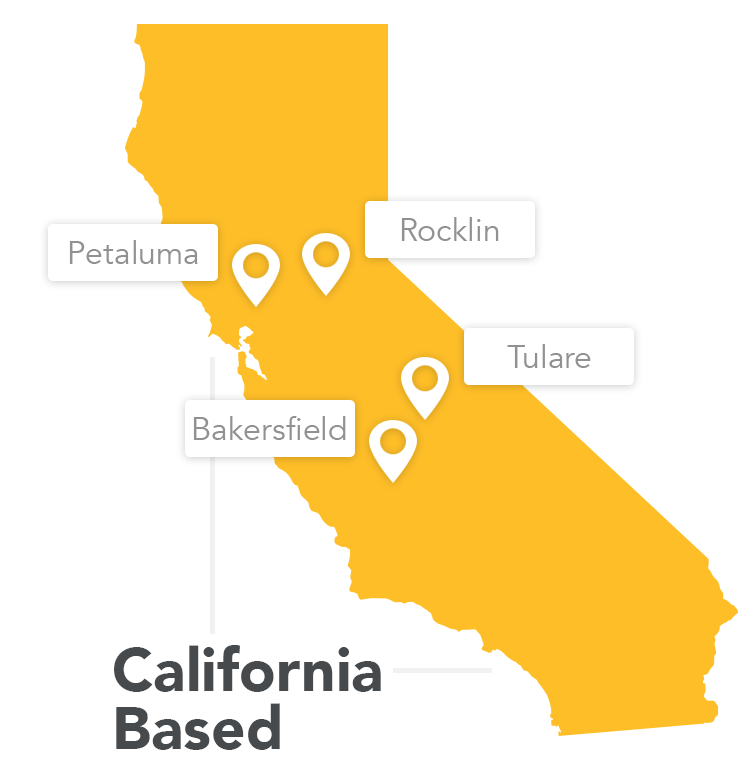Understanding Renewable Energy Credits in California
RECs (Renewable Energy Credits, sometimes called Green Tags or Renewable Energy Certificates) are a measure of renewable energy used in the United States in states like California to help subsidize and market renewable energy. Furthermore, many states have enacted a Renewable Portfolio Standard (RPS), which mandates that electricity generation companies generate a specific proportion of renewable power each year. Businesses can create, buy, and sell RECs to help meet their renewable energy goals, offset carbon emissions, and much more.
Coldwell Solar provides consultation services to enable both buyers and sellers in the REC market. However, we understand that businesses new to the process may have plenty of questions. Let’s go over some of the more commonly asked questions.
1. What exactly are RECs?
RECs are units that represent the clean energy created by specific renewable sources, like a solar energy grid and wind power grid. One REC represents one megawatt-hour (MWh) of energy produced and delivered by a renewable energy source. The tradable renewable certificates can be exchanged on a market between businesses and owners as a method of raising cash or meeting sustainability goals. RECs generated entirely from solar panel installations in California may be referred to as SRECs (Solar Renewable Energy Credits or Solar RECs.) Although it is feasible to calculate how much fossil fuel generation or carbon pollution was avoided by using renewable energy sources for a Megawatt hour; Keep in mind that a REC does not guarantee the avoidance of any specific amount of fossil fuel energy generation.
2. How do RECs work?
RECs represent renewable energy but buying or selling them doesn’t mean that an organization is buying or selling the energy itself. Instead, it is trading on the value of renewability. That may sound strange, but it’s an important credit in a state like California where meeting energy goals or qualifying for tax credits and energy incentives are key commercial goals.
REC units are produced by renewable energy sources and automatically credited to the organization that owns those sources, from massive solar energy grids to companies investing in solar panels on their buildings. Wind farms, solar farms, biomass, and other types of renewable generators can also generate RECs.
The owner of the REC can either hold it or sell it, but a REC can only be sold once. When a company purchases a REC, they are purchasing proof that they have “used” that renewable energy, even if the actual energy has gone elsewhere on the electric grid.
3. What are the benefits of RECs?
There are several benefits to RECs depending on an organization’s position, including economic and positive environmental attributes:
- RECs are a commodity that clean energy creators can sell to raise cash with their excess renewable electricity generation.
- RECs are a credit that can be held to lower an organization’s carbon footprint numbers or meet other energy and sustainable development goals (Whole Foods and Starbucks both do this, for example).
- Organizations and consumers can purchase RECs specifically to encourage the renewable energy market for environmental benefits.
- The market acts as a subsidy to encourage more renewable energy use.
- Utilities and other organizations can buy RECs specifically to meet renewable energy regulations in California.
4. How do you buy RECs?
There are two common options when buying RECs. First, industrial customers can buy directly from a utility company that has renewable resources. Second, you can contact third-party electricity suppliers that sell on behalf of electric companies and other electrical utility providers. These companies are typically certified with Green-e certifications in North America. Further, Green-e Energy is a non-profit formed by the Center for Resource Solutions, which will verify RECs to guarantee that they are correctly accounted for and that there is no duplicate counting.
If your organization is looking for a specific REC purchase strategy or wants to meet certain renewable energy goals, you can contact Coldwell Solar for more information and help create the correct purchase plans.
Renewable Energy Credit prices can vary based on a number of market factors. This includes the location of the renewable energy resource, the type of renewables, basic supply and demand, and if the RECs are being bought in bulk for compliance reasons.
5. How do you sell RECs?
There are various ways to sell RECs and Coldwell Solar can help streamline the process of selecting the right strategy for selling your excess solar renewable energy certificates. However, it’s important to note that when an organization sells its RECs, it cannot claim the use of renewable energy that it has produced.
6. What is California’s Low Carbon Fuel Standard (LCFS) Program and how does it work?
This renewable energy project is a program designed to reduce carbon emission levels from transportation fuel, specifically targeted at groups like the trucking industry. The program uses “carbon intensity” or CI levels of specific fuels to set fuel targets. If an organization uses transportation fuels with a lower CI than the current established target, they generate LCFS credits. These function in a very similar way to RECs and are frequently sold to fuel producers to cover their carbon emission deficits.
7. Can RECs be used in the LCFS program?
RECs can be used to receive LCFS credits for low CI electricity, making fuel producers and similar organizations potential purchasers of RECs. However, those RECs cannot also be used for the Voluntary Renewable Energy (VRE) Program. In other words, there’s no double-dipping.
About Coldwell Solar
Coldwell Solar is dedicated to providing effective, reliable and efficient solar energy solutions and services to business and utility clients.

Founded in 1986, Coldwell Solar, Inc. is based in Rocklin with offices in Tulare, Bakersfield and Petaluma, California. The company offers superior standards of professionalism and integrity in the building of long-lasting solar installations that provide the highest energy output – with significant savings on energy costs. Transparency and ongoing service support to customers, coupled with integrity in all of the company’s work, is the bedrock of Coldwell Solar’s business values, and always will be. Highly-skilled employees bring unmatched power system engineering and project management experience from the solar, construction and energy management industries. A significant part of that expertise is the result of the company’s history of innovation in design, engineering and construction.
Coldwell Solar handles the entire solar installation process, including permits,
rebates, engineering, construction, on-going monitoring and support of the
system for years, as an energy partner.
CALIFORNIA CERTIFIED
All of our experts are certified to ensure your project is done right.

Coldwell Solar focuses on serving agribusiness, farms, utilities, architects, general contractors, commercial buildings, properties, schools, manufacturing and industrial companies. The company is certified to meet the most complex standards and consistently delivers the highest-quality, long-lasting workmanship.
CA Lic # 969149
Call us Today:
Toll Free: 1 (888) 705-5055
Direct: (916) 435-2900
Email: [email protected]
Outside of USA Direct: 011+1 (916) 435-2900
Coldwell Solar California Offices:
Rocklin Office
500 Menlo Dr. #100
Rocklin, CA 95765
San Diego Office
2349 La Mirada Dr.
Vista, CA 92081
Tulare Office
4500 S. Laspina St. #224
Tulare, CA 93274

